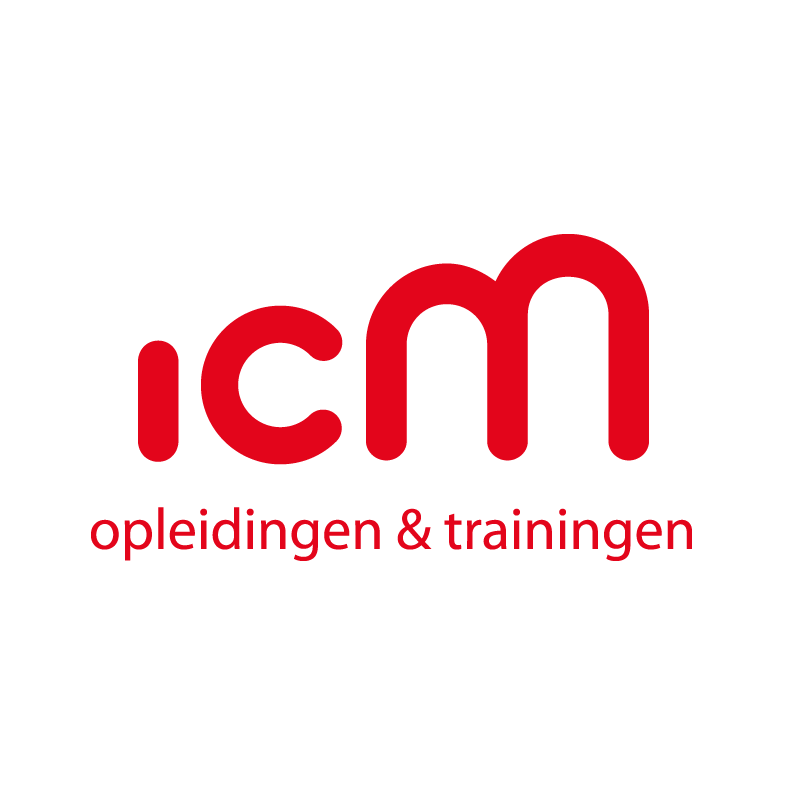

ICM opleidingen & trainingen

Utrecht, Netherlands The
October 2024
Education & training services
Service with Minor Environmental Footprint
Netherlands The
ICM challenges its participants to pursue lifelong development through quality education, enabling them to grow both as professionals and as individuals. To achieve this, ICM offers over 300 courses and Incompany programmes, develops tailored learning solutions for organisations, organises events throughout the year, and shares daily content and inspiration. A sense of purpose was at the core of founders Harrie-Peter and Erik’s vision when they established ICM. Their goal was to create a company that makes a positive impact. This intention remains tangible to this day. At ICM’s office, a message on the stairs reads: ‘What you give, you receive in return.’ This motto reflects the heart of ICM, where people and their interactions with others take centre stage. ICM believes that the secret to happiness lies in being meaningful to others. Its ambition is to inspire and support people in their development, helping them not only achieve their own goals but also have a positive impact on those around them. By growing together, ICM envisions a world where happiness is not solely dependent on individual achievements but is deeply rooted in the contributions we make to others. ICM continually asks itself: how can we make a positive impact on the environment and society?
Overall B Impact Score
Governance 15.6
Governance evaluates a company's overall mission, engagement around its social/environmental impact, ethics, and transparency. This section also evaluates the ability of a company to protect their mission and formally consider stakeholders in decision making through their corporate structure (e.g. benefit corporation) or corporate governing documents.
What is this? A company with an Impact Business Model is intentionally designed to create a specific positive outcome for one of its stakeholders - such as workers, community, environment, or customers.
Workers 32.4
Workers evaluates a company’s contributions to its employees’ financial security, health & safety, wellness, career development, and engagement & satisfaction. In addition, this section recognizes business models designed to benefit workers, such as companies that are at least 40% owned by non-executive employees and those that have workforce development programs to support individuals with barriers to employment.
Community 21.1
Community evaluates a company’s engagement with and impact on the communities in which it operates, hires from, and sources from. Topics include diversity, equity & inclusion, economic impact, civic engagement, charitable giving, and supply chain management. In addition, this section recognizes business models that are designed to address specific community-oriented problems, such as poverty alleviation through fair trade sourcing or distribution via microenterprises, producer cooperative models, locally focused economic development, and formal charitable giving commitments.
Environment 9.1
Environment evaluates a company’s overall environmental management practices as well as its impact on the air, climate, water, land, and biodiversity. This includes the direct impact of a company’s operations and, when applicable its supply chain and distribution channels. This section also recognizes companies with environmentally innovative production processes and those that sell products or services that have a positive environmental impact. Some examples might include products and services that create renewable energy, reduce consumption or waste, conserve land or wildlife, provide less toxic alternatives to the market, or educate people about environmental problems.
Customers 26.9
Customers evaluates a company’s stewardship of its customers through the quality of its products and services, ethical marketing, data privacy and security, and feedback channels. In addition, this section recognizes products or services that are designed to address a particular social problem for or through its customers, such as health or educational products, arts & media products, serving underserved customers/clients, and services that improve the social impact of other businesses or organizations.
What is this? A company with an Impact Business Model is intentionally designed to create a specific positive outcome for one of its stakeholders - such as workers, community, environment, or customers.